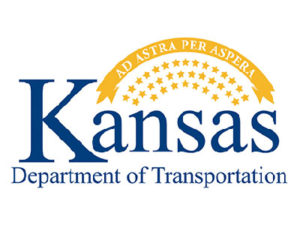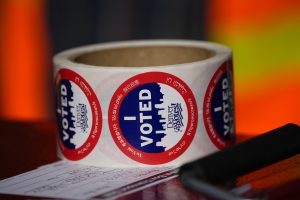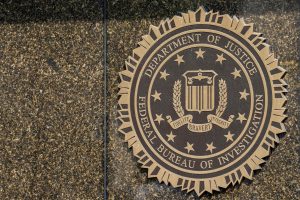Kansas audit questions whether local election security policies are strong enough

Kansas state Rep. Kristey Williams, R-Augusta, makes a point during a meeting of a legislative committee about an audit on counties' election security policies, Thursday, July 6, 2023, at the Statehouse in Topeka, Kan. The audit says counties don't appear to have strong or detailed enough election security policies in place and that the state isn't providing enough guidance. (AP Photo/John Hanna)
By JOHN HANNA AP Political Writer
TOPEKA, Kan. (AP) — County election security policies in Kansas don’t appear to be strong or detailed enough, and the state doesn’t appear to be giving counties enough guidance on how best to oversee voting, according to an audit released Thursday.
The report from the auditing arm of the Republican-controlled Legislature is the second on election security issues this year and was initiated amid an ongoing circulation of baseless election conspiracy theories among GOP conservatives. The first report, released in February, said auditors couldn’t tell whether county election workers are being adequately trained “because no one tracks this, and state law says very little about it.”
Like their counterparts in other states, Kansas supporters of former President Donald Trump have suggested that fraud is a major issue in the state’s elections despite the lack of evidence of a significant problem. However, rather than attempt to bolster or undercut such claims, the two audits this year have focused on election procedures and whether they represent election security gaps.
For the latest report, auditors examined election security procedures in 15 of the state’s 105 counties and found that none of those counties had comprehensive security policies or guidance. The audit said most of the counties had inadequate procedures for testing voting machines’ accuracy after elections or for securing their voting machines from unauthorized access while they are deployed.
“We have some work to do,” said state Sen. Caryn Tyson, a Parker Republican and vice chair of the legislative committee directing the auditors’ work.
The audit suggested that money and personnel plays a role: The more populous counties surveyed generally were better at following best practices outlined by the federal Election Assistance Commission than the more rural ones. Yet even the auditors avoided suggesting that election procedures ought to be uniform across the state.
Asked whether the Kansas secretary of state’s office might have separate sets of guidance for the most populous counties and the others, state elections director Bryan Caskey said: “To me, there’s 105 ways of doing things, not two.”
Secretary of State Scott Schwab’s office pushed back on auditors’ suggestion that it isn’t providing enough guidance on security issues to county officials. Its formal response to the audit said its training for election officials deals with security issues and the office is working on more standardized policies and forms.
Caskey said security regulations will be updated before the 2024 election and Schwab’s office passes along guidance on best practices from multiple federal agencies. He noted that the agencies don’t have a single, common list of practices that guarantee a secure election, making guidance “a never-ending job.”
Still, Rep. Kristey Williams, an Augusta Republican and another audit committee member, said a single list of best practices for county officials “absolutely makes sense.”
“I do think that it’d be overwhelming for county clerks, especially small counties, that may just recently have been elected to that position, to try to discern what are the best practices from so many different agencies or outlets,” Williams said.
Sen. Ethan Corson, a Prairie Village Democrat and audit committee member, said while lawmakers should encourage Schwab’s office to provide more guidance, they shouldn’t impose mandates without providing the funding to meet them, especially in rural counties.
“This is a tricky issue,” Corson said.








